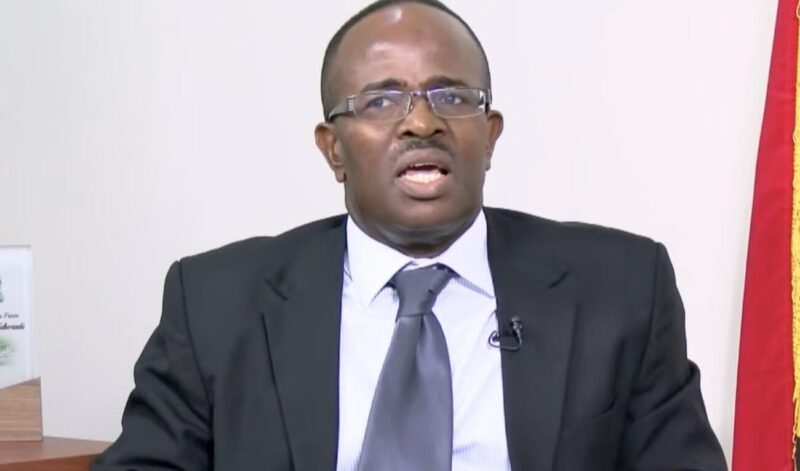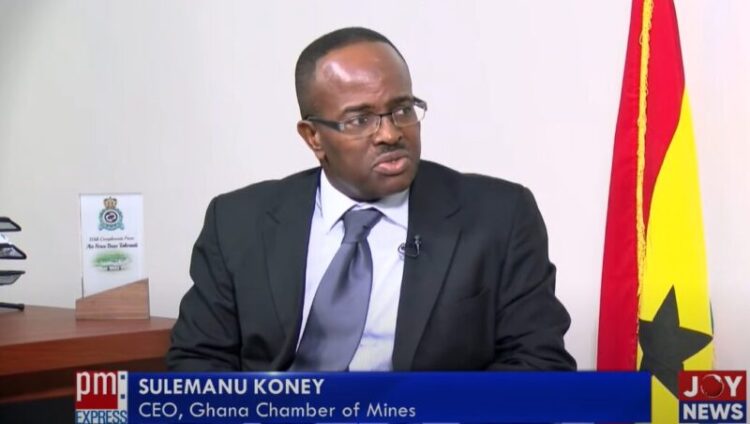The CEO of the Ghana Chamber of Mines, Sulemanu Koney, has provided critical insights into the role of the mining sector in stabilising the local currency.
Speaking to Joy News’ PM Express Business Edition on Thursday, September 19, he stated that without the contributions of the mining industry, the Ghanaian cedi could be in far worse shape, possibly reaching ¢25 to $1.
He countered arguments suggesting that the mining industry has not sufficiently impacted the local currency, stating, “Trust me, if you didn’t have the mining industry, we would probably be heading to around ¢25 to $1.”
Mr Koney acknowledged that while there are misconceptions about the industry’s contribution to the economy, he stressed that the facts speak for themselves.
Read also: BoG says it capped allocation to ‘Gold for Oil’ policy in line with IMF directive
According to him, a significant portion of the country’s foreign exchange earnings comes from mining, and initiatives like the collaboration between the Bank of Ghana and mining companies to sell part of their gold reserves have played a crucial role in shoring up the currency.

“Over the last few years, we’ve had a collaboration with the Bank of Ghana where part of our gold is sold to them as part of their reserves. This has been voluntary, not compulsory, but we still do it,” Mr Koney explained.
In response to claims that Ghana’s mining sector should bolster its gold reserves more effectively like some non-mining nations, he highlighted a key difference: “Countries that don’t mine gold often have huge reserves, but that’s because they play in a different space.
"Mining companies are not in that business. We bring the foreign exchange into the country to run our operations.”
Read also: Analysis: Ghana’s Gold-for-Oil gamble
He also pointed out that mining companies contribute to the economy by purchasing various inputs, including labour, energy, and consumables, all of which are paid for in cedis.
“You have to pay for labour, energy, and other inputs locally. How do you do that if you don’t bring money into the country? Naturally, a significant portion of revenue comes back,” Koney said.
Latest Stories
-
Shirley Frimpong Manso addresses poor support system in film industry
2 minutes -
Genesis Foundation launches campaign to tackle Teenage Drug Abuse on June 21
14 minutes -
GII urges Mahama to match words with action on anti-corruption commitments
34 minutes -
“I Needed to Speak”: Funke Akindele gets candid about loss and mental health
40 minutes -
JoyPrime’s TroTro Diaries partners with COMAC to champion fuel quality and road safety
46 minutes -
Clara Kukua Savage
51 minutes -
GAFOSC in commanding form ahead of decisive UG Corporate League clash
2 hours -
99% of NPP Council members backed early presidential primary – Justin Kodua
2 hours -
Ablekuma North collation: Police playing funny games with us – NPP
2 hours -
Education Ministry orders nationwide audit over poor quality of SHS meals
2 hours -
Visa delays due to logistical failures by US Postal Service – Ablakwa
2 hours -
Two suspected robbers lynched, two arrested in Bosome Freho after fatal attack
2 hours -
Pan-Africanists strengthen case for reparations from colonial masters
2 hours -
Gov’t suspends NSA’s portal for posting personnel over ghost names scandal
2 hours -
Michael Blackson and fiancée Rada Darling welcome son ‘Lil Mikey’
2 hours

